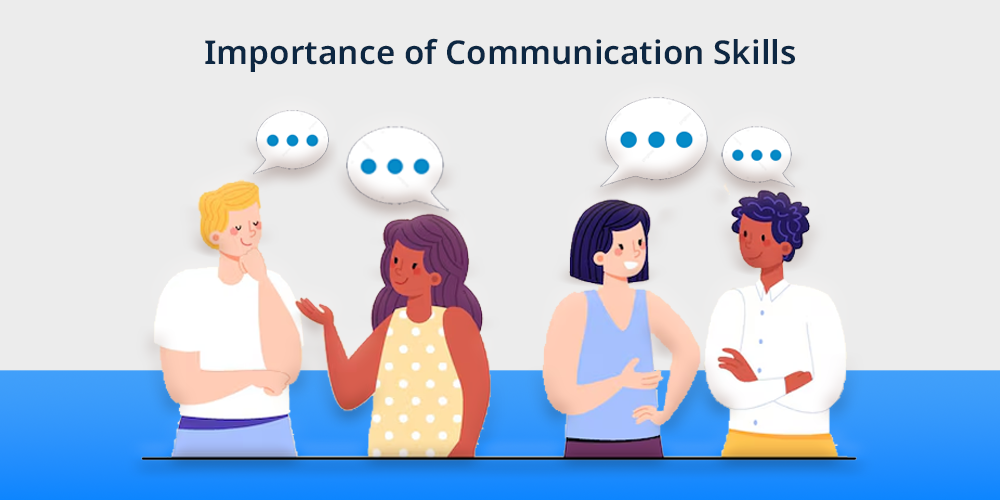
Communication skills play an integral role in connecting the world. Communication skills enhance the ability of individuals to share their thoughts or messages via different mediums.
Communication is essential in boosting the cognitive development of children , it also promotes teamwork and enhances social interaction among kids. Communication Skills are very essential in our day to day life, Communication is used in every aspects of life from work place to academic foundation.
Effective communication is essential to reduce any miscommunication and jargon between two subjects. The importance of communication skills in life helps in building trust and promoting teamwork and creates a friendly environment among students and individuals.
Effective communication is very essential for digital literacy , this allows children to understand the concepts more easily.
Contents
What are Communication Skills?
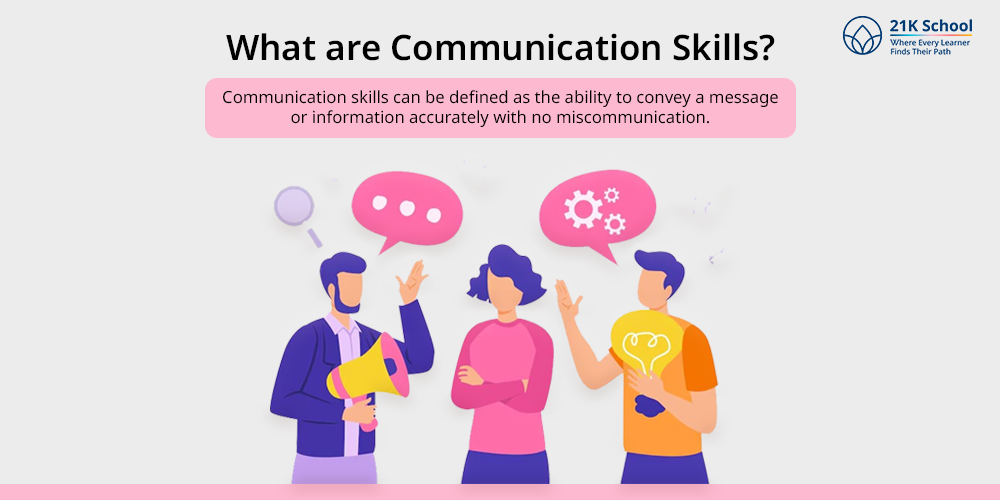
Communication skills can be defined as the ability to convey a message or information accurately with no miscommunication. Communication skills play an integral role in schools, educational institutes and work place.
Effective communication not only promotes cognitive development among students but also develops trust and undertakings among individuals.
For example 21K school uses communication skills to convey information or classes through online platforms to boost the education system.
Communication skills include active listening, speaking, observation and empathising. Communication doesn’t mean conveying a message verbally but by use ony means such as phones, visuals, illustrations, graphics, text, signs, etc. In communication, listening is the first and most essential component.
Communication also showcases the importance of skill development in school education , and enhance their learning opportunity through mutual understanding.
Types of Communication Skills
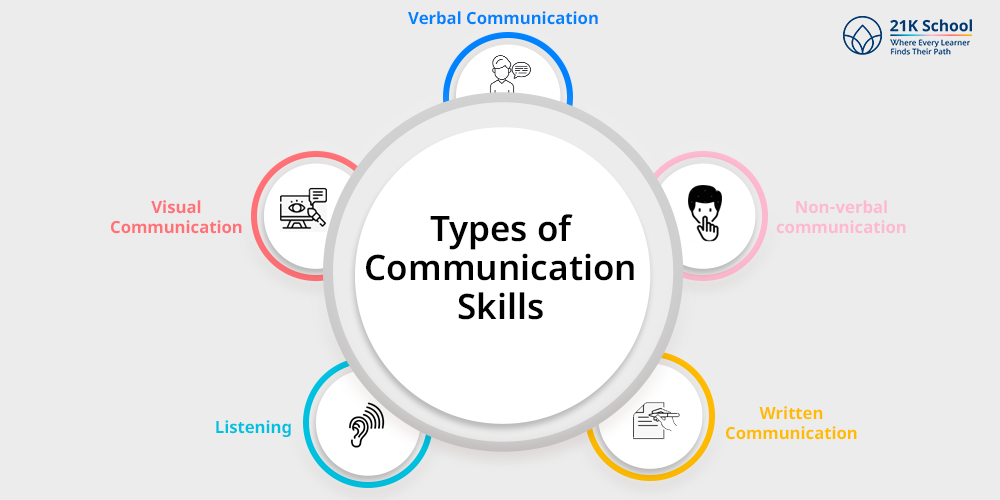
Communication is the interpretation of a message from one place to another by means of a formal and non-formal manner. Communication has five types and can be used to communicate with various means.
Communication can be done through telephones, internet, satellite, wireless network, and so on. Like effective communication student-centred learning is also important to boost productivity of children.
Parts of Communication
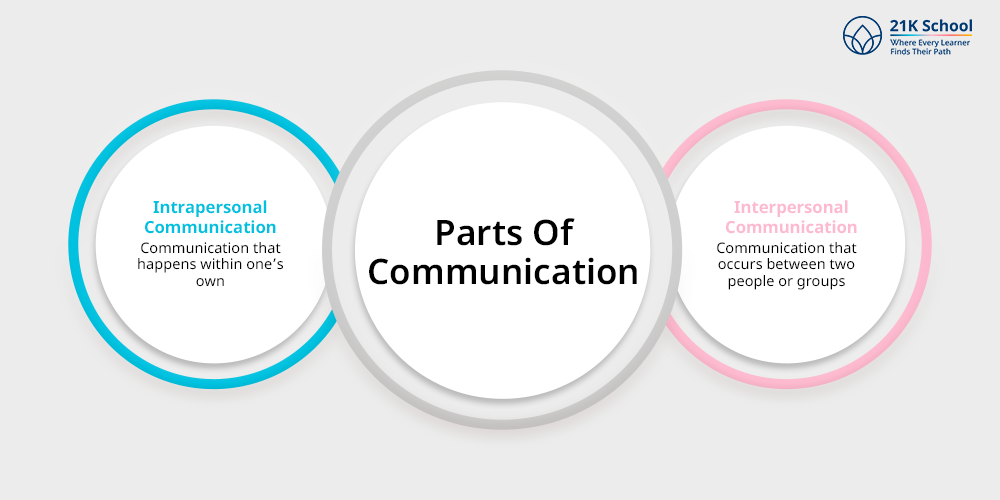
Communication has two parts: intrapersonal communication and interpersonal communication.
- Intrapersonal Communication: Intrapersonal communication is a procedure of communication that happens within one’s own, such as humming music, talking to oneself, etc.
- Interpersonal Communication: Interpersonal communication is a procedure of communication that occurs between two people or groups.
Here are the types of communications mentioned below.
- Verbal Communication: Verbal communication is a type of communication that contains spoken words. In verbal communication, a message or information can be conveyed by speaking.
- Non-verbal communication: Nonverbal communication is a method of communication by means of facial expressions, body language, hand movements, and eye contact. In non-verbal communication, no spoken word or speaking is used to convey messages or information.
- Written Communication: Writing communication is a technique of conveying messages by means of writing. Letters, emails, notes, texts, and billboards are examples of written communication. It is a verbal communication, but it doesn’t include spoken language.
- Listening: Listening is the most important part of communication, conveying a message formally. Listening doesn’t mean hearing any information, but it is a very critical part of understanding what message the other person is trying to say.
- Visual Communication: Visual communication is a special communication that doesn’t include any spoken or written word. In visual communication, a message or information is delivered through graphical representations, visual aids, images, arts, etc.
Top 10 Importance of Communication Skills
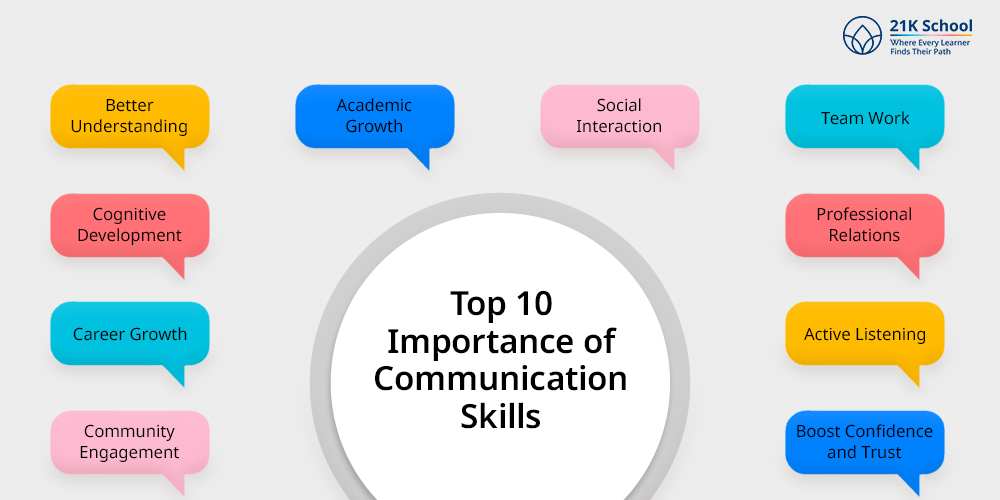
Communication plays an essential role in every part of our life. Communication is used to deliver messages in a formal and non-formal manner.
Communication skills are very necessary for students to achieve success educationally, professionally and socially. This boosts confidence among students to enhance their study and also promotes peer to peer education .
Here are the top 10 importance of communication skills
1. Community Engagement:
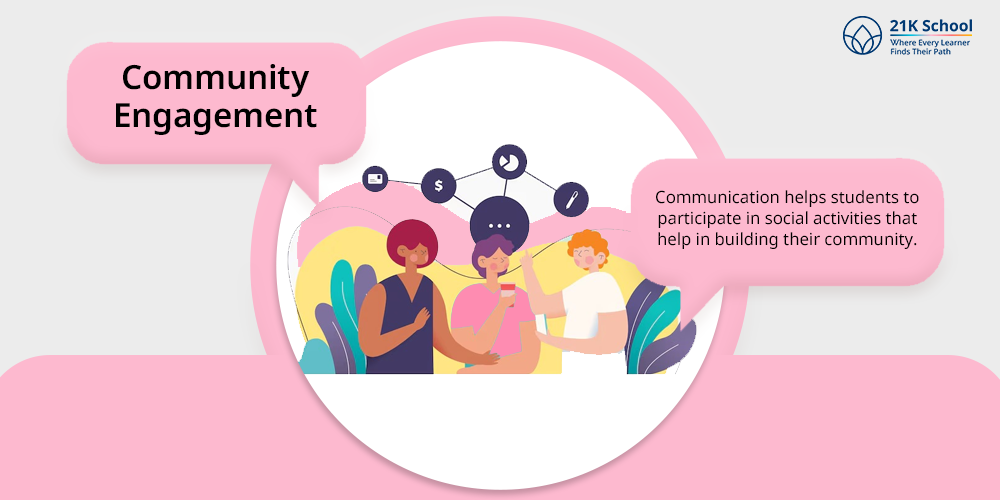
Communication skills promote community engagement among students. Communication helps students to participate in social activities that help in building their community.
2. Career Growth:

Active communication is very much essential for career advancement. In today’s professional job market, candidates who have effective communication skills have higher chances of getting a reputed job.
Through proper communication, they can show their skill and fundamental requirements for career growth.
3. Cognitive Development:
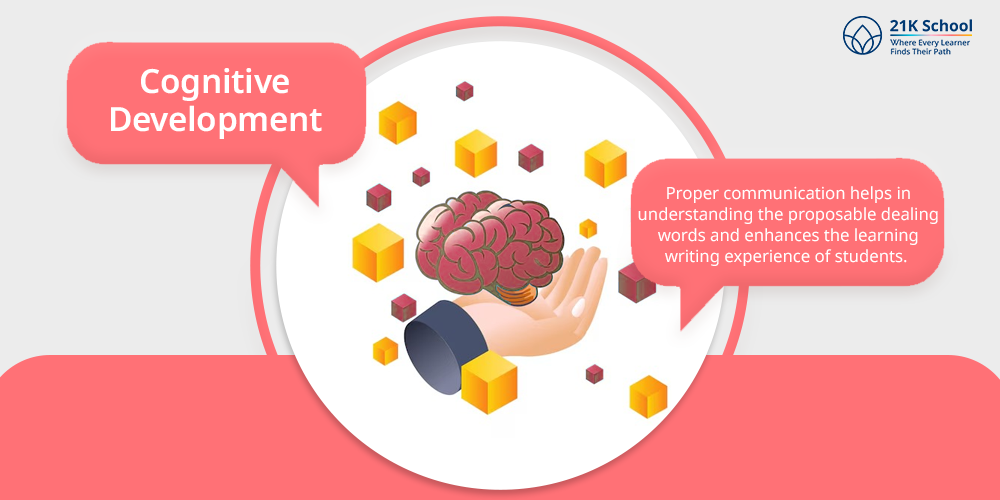
Communication skills promote cognitive development among students and adults.
Proper communication helps in understanding the proposable dealing words and enhances the learning writing experience of students. Understanding multiple languages enhances the cognitive ability of brain cells.
4. Better Understanding:
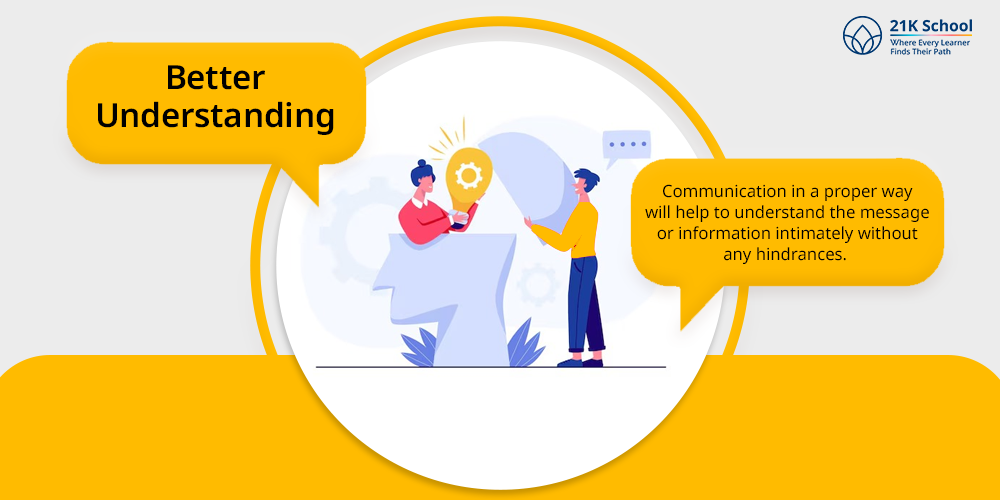
Effective communication is essential in promoting better understanding among individuals.
Communication in a proper way will help to understand the message or information intimately without any hindrances. That creates a chain of proper communication among students and builds a better future.
5. Academic Growth:
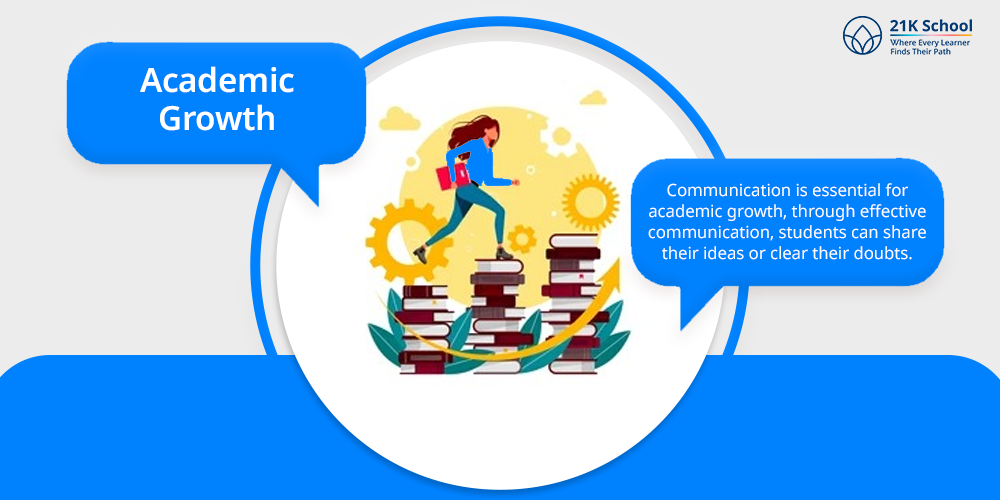
Communication is essential for academic growth, through effective communication, students can share their ideas or clear their doubts.
To understand effective communication, students can participate in debates , discussions, presentations and so on. This will help them in breaking their limits.
6. Social Interaction:
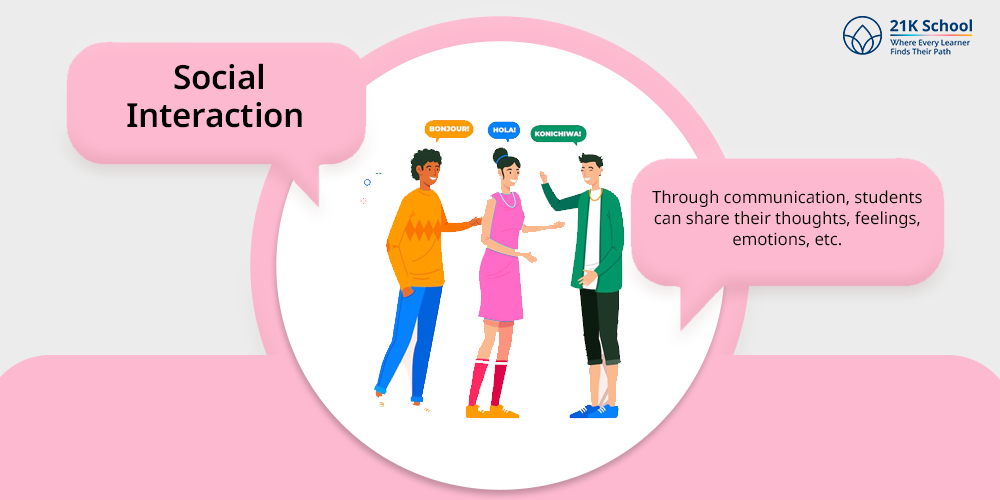
Social interaction is very much essential in today’s society. Communication helps in enhancing social interaction among students.
Through communication, students can share their thoughts, feelings, emotions, etc. That will promote understanding among themselves.
7. Team Work:
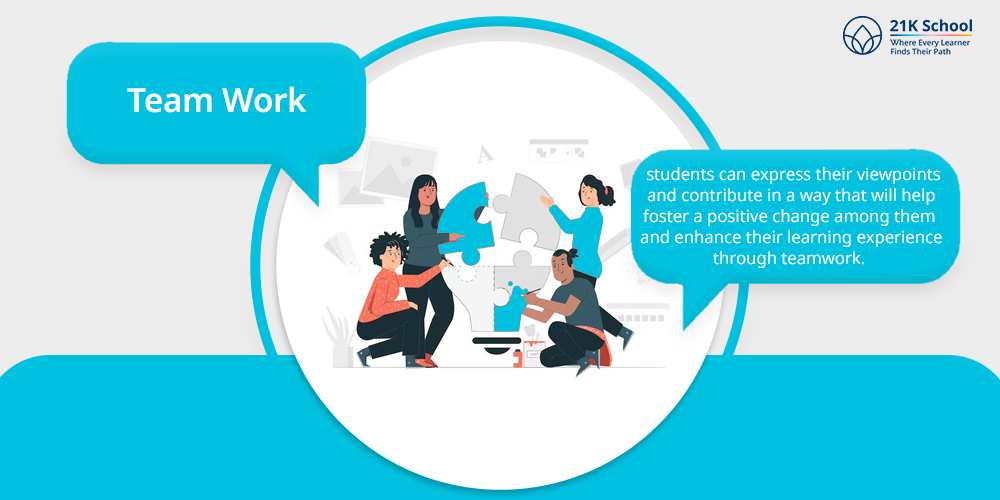
Communication plays a vital role in promoting team work. Through communication, students can express their viewpoints and contribute in a way that will help foster a positive change among them and enhance their learning experience through teamwork.
It is also necessary to check how do children socialize with each other through communication.
8. Professional Relations:
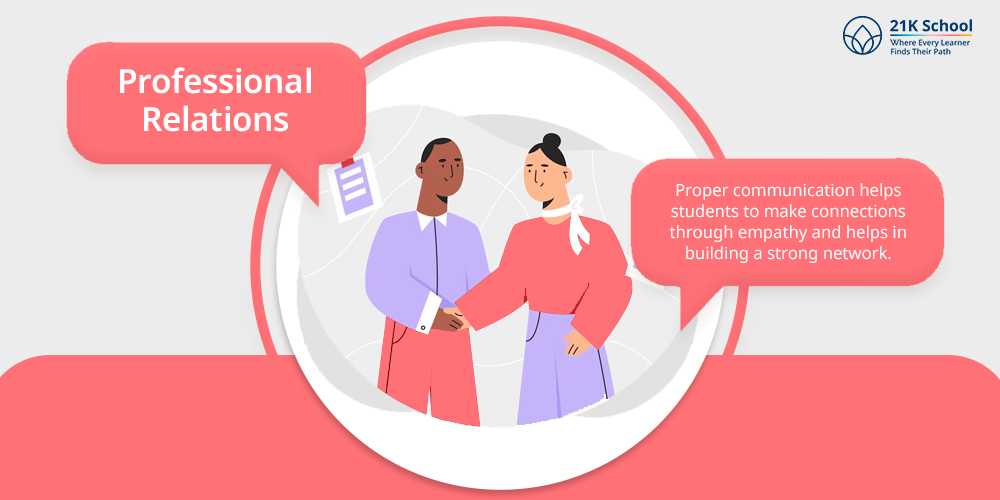
Communication helps in building professional relations with teachers and business tycoons.
Proper communication helps students to make connections through empathy and helps in building a strong network. This helps in creating a positive impact on academic and personal goals.
9. Active Listening:
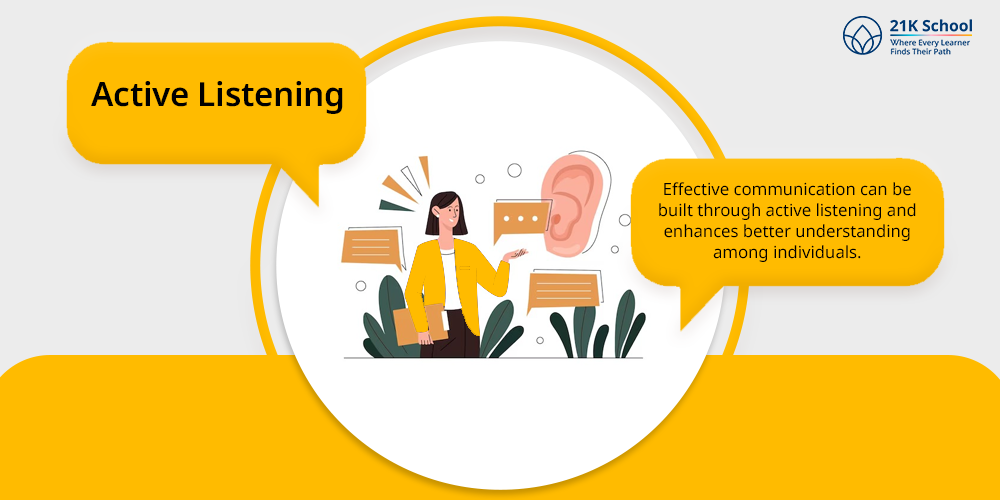
Active listening is an essential part of communication. Proper communication can be initiated through active listening. Effective communication can be built through active listening and enhances better understanding among individuals.
10. Boost Confidence and Trust:
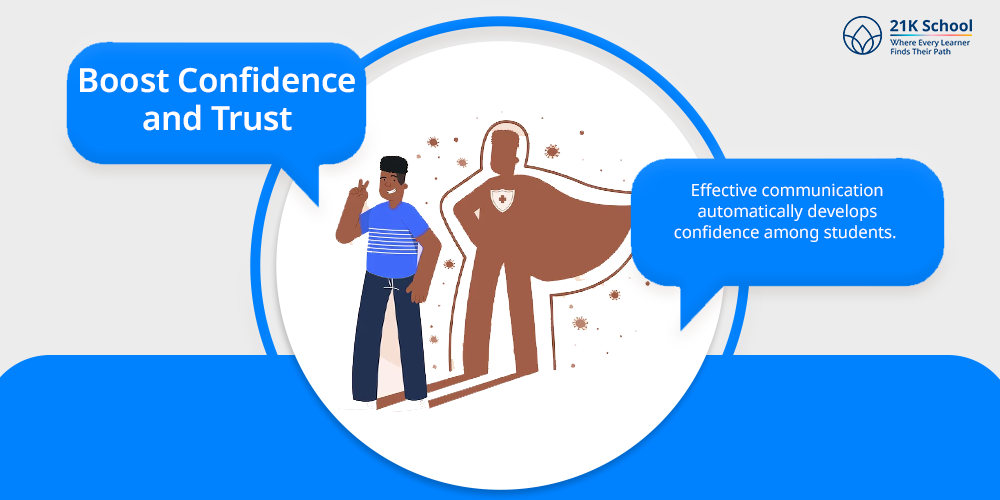
Communication skills enhance confidence and trust among children. Effective communication automatically develops confidence among students.
Effective and formal communication also creates a sense of trust among individuals through maintaining good relationships.
Conclusion
For students to grow personally academically and professionally communication skills are essential. They provide the framework for productive communication encouraging mutual respect cooperation and trust between students and teachers. Learn about teacher-student relationship .
Gaining proficiency in verbal nonverbal written and visual communication can help students develop their cognitive skills participate actively in their communities and advance their careers.
It is impossible to overestimate the value of active listening and clear thought expression since they are crucial for fostering relationships and boosting self-esteem.
After all proficient communicators enable students to successfully traverse their academic paths and future professions rendering them indispensable resources in the connected world of today.
